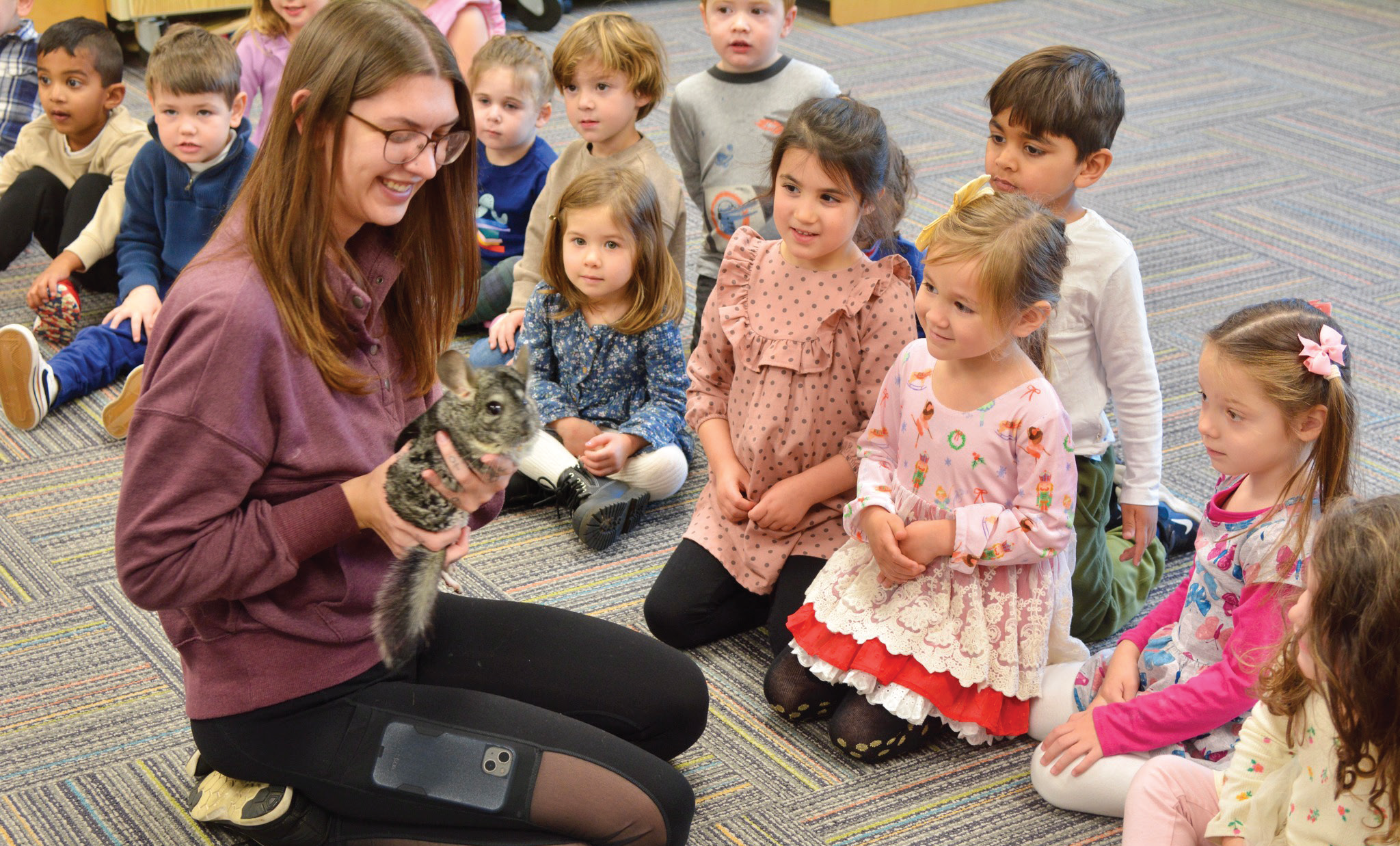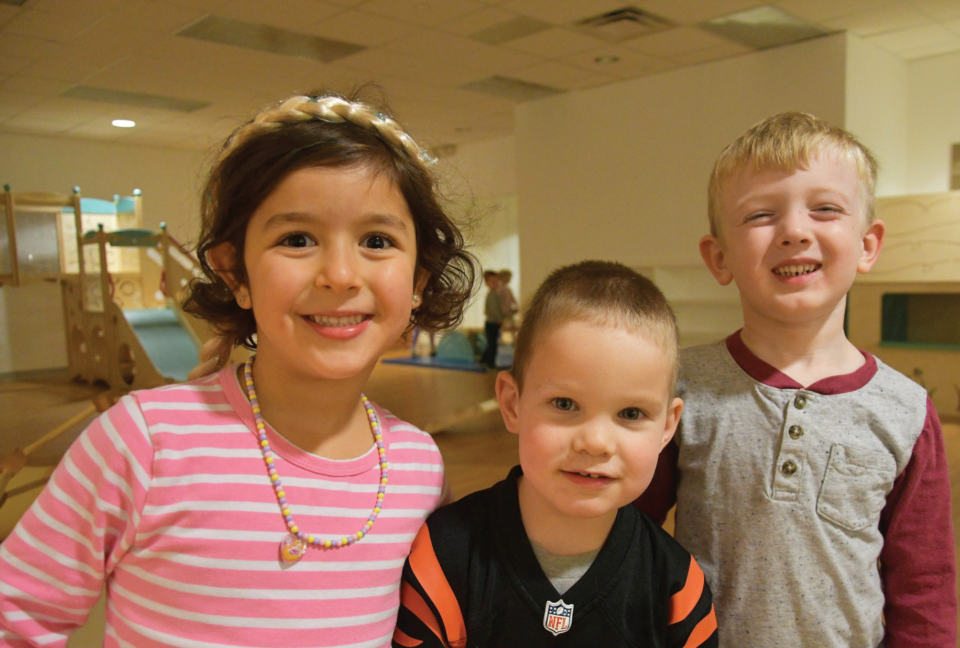When it comes to education, sometimes you get what you pay for. Private schools cost way more than public schools and seem to be worth it. Here’s what we dug up.
HIGH ACADEMIC STANDARDS
Private school students tend to outperform their public school peers. National Assessment of Educational Progress (NAEP) data states that private school students tend to perform better on standardized tests and in almost all subjects.
“Catholic schools maintain rigorous academic standards, preparing students for future academic and professional challenges,” says Covington Catholic High School Director of Marketing, Julane Becker.
In addition to higher test scores, private schools offer other academic benefits. They have more flexibility than public schools in designing academic programs.
“Private schools can offer a variety of enrichment options and electives that help students learn more than the basic required curriculum,” says Saint Ursula Academy Vice President of Communications, Jill Cahill. “They can learn how to think critically and problem-solve. They can learn how to make an impact in the world by exploring and focusing on their talents.”
St. Bernard Catholic School Principal, Tony Ertel adds, “Private schools have the ability to decide how they are going to achieve academic excellence and which social issues are appropriate to address in the school setting. Private schools, compared to public, also can prioritize student learning and growth over meeting the sometimes arbitrary, sometimes senseless barometers of success established by the government (and driving government funding).”
CLASS SIZES
One of the most important reasons parents opt to send their children to private schools is class size. Research.com states that the average public school class size is 24, whereas the average private school class size is 18.8. Smaller class sizes provide students with more teacher attention, which can translate into higher achievement.
“Choosing a school is a difficult decision,” says Villa Madonna Academy Director of Communications, Amy Holtzman. “The Cincinnati area has many good public and private options. It is all about finding the right fit for each family. One difference that parents will generally find at private schools like Villa Madonna Academy is small class sizes. Teachers are able to get to know the students and tailor instruction to meet the students where they are.”
Becker articulates, “With smaller student populations, Catholic schools provide more personalized attention, fostering a supportive learning environment and meaningful teacher-student relationships. With small class sizes and five levels of classes available, teachers can take the time to understand the individual learning styles, strengths and challenges of each student and can tailor their approach to meet the specific needs.”
Seven Hills Head of School, Chris Garten says, “Many independent schools can offer smaller class sizes and pupil loads that permit teachers to understand much more fully the unique needs of each of their students.”
“Smaller class sizes allow teachers to focus on fewer students at a time, thus allowing them to gain a better understanding of whether the students are understanding the material,” Cahill adds. ”Some data shows students learn faster and perform better in smaller classes (fewer than 20). These small classes lead to increased individual attention, increased participation and better communication between the teacher and the students.”
According to Ertel, smaller class size offers so many benefits including better class culture and teachers can identify individual students’ needs more easily – both where they need support and where they can be extended (challenged further).

VALUES
About 84 percent of private schools are religious. Many parents who send their children to private schools wish to instill religious values in their children. Some parents also send their children to private schools because they do not feel comfortable with some of the values that public schools instill.
“Catholic schools prioritize instilling strong moral and ethical values, fostering character development alongside academic learning, Becker articulates. “Catholic schools promote a close-knit community, encouraging strong bonds among students, teachers and parents, creating a supportive network.”
In addition, many independent schools share a commitment to nurturing the growth of the ‘whole child’ and to fostering important life skills such as curiosity, critical thinking and creative problem solving,
according to Garten.
EXTRA OFFERINGS
As recently as 2020, public schools received 47 percent of their funding from state governments and 45 percent from local governments. Some localities are wealthier than others, and many public schools have limited extra offerings. Private schools tend to offer more amenities.
“Private schools also have the added benefit of providing unique opportunities that may not be available at other schools,” says Holtzman. “For instance, Villa offers inclusive extracurriculars. All students are invited to participate in sports and clubs giving them the benefit of being a part of the team.”
Bethany School Director of Advancement, Kristen Reyes-Tarsiuk articulates that private schools also provide parents with a sense of agency.
Cahill adds, “Private schools can also offer additional resources that might not be found in public schools like student centers, athletic fasciitis, IT support, nutritional meal options, more one-on-one counseling support, and whole-person development, including faith development in many cases.”
Private schools are not all the same and many have different offerings. Some are religious and others are not. However, private schools seem to consistently offer higher academic standards, smaller class sizes, and more amenities.





